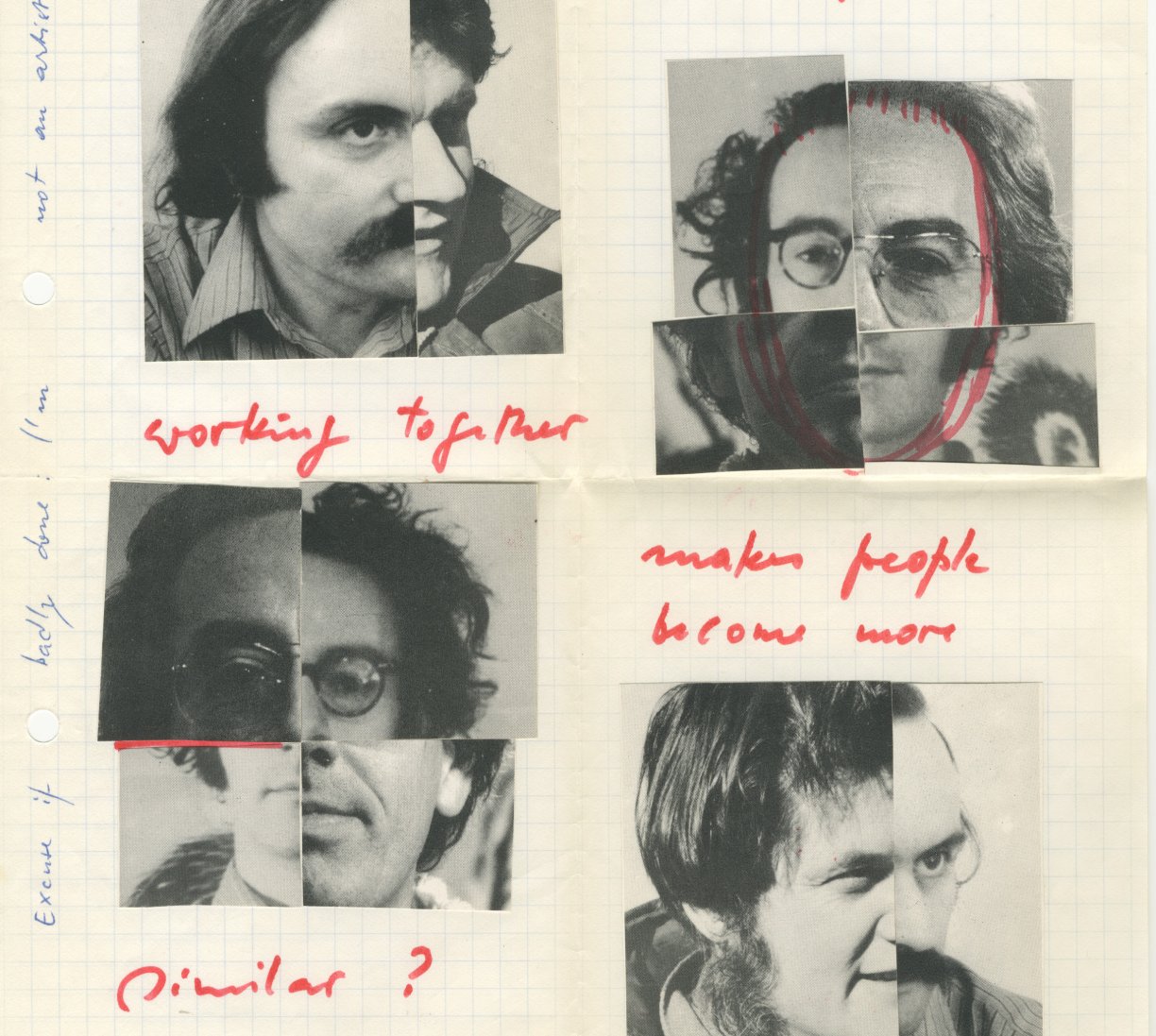Alvin Lucier: Double Helix
ISSUE presents the first evening of a two day series observing the legacy of late 60s-early 70s experimental music collective the Sonic Arts Union and its founding members: David Behrman, Alvin Lucier, Gordon Mumma, and the late Robert Ashley (1930-2014). The series intersects the group’s extensive individual performative histories with ISSUE and celebrates Sonic Arts Union’s role in pioneering many practices that have since become essential to experimental performance in the United States, including the use of live electronics, homemade instruments, and multimedia presentations. The programs feature both performances from Sonic Arts Union members and stagings of their compositions.
The July 20th program features newer works penned by the collective, performed by friends and collaborators including Oren Ambarchi, Stephen O’Malley, Bernhard Rietbrock, Jan Thoben, Joseph Kubera, Gelsey Bell, Aliza Simons, Dave Ruder, Trevor Saint, John King and Cleek Schrey
The evening features the world premiere of Alvin Lucier’s Double Helix for four guitars, his second ever piece written exclusively for the instrument. The piece is performed by composer and multi-instrumentalist Oren Ambarchi and doom-metal legend of Sunn O)))) Stephen O’Malley, who together gave the NY premiere of Lucier’s Criss-Cross at ISSUE in 2014, and additionally features Ever Present Orchestra director Bernhard Rietbrock and sound studies lecturer Jan Thoben to complete the quartet.
The program observes the Sonic Arts Union’s multifaceted recontextualization of technical objects and their role in the formation of a new musical genre, live electronic music, as a specific achievement in the development of American experimental music. SAU formed in 1966 when Ashley, Behrman, Lucier, and Mumma, all of whom had worked together in the instrumental performances of the ONCE festivals, decided to pool their resources and help one another with the performance and staging of their music. The distinct democratic orientation of the union, and the composers’ individual contributions to non-hierarchical approaches to sound, technique, method, and technology developed a crucial context for the production of experimental music and culture in the United States into the 21st century.
Since the mid-1960s, Alvin Lucier has produced a range of important compositions that have influenced the culture of experimental music and the sonic arts. Early works such as Music for Solo Performer (1965), Vespers (1968), I am sitting in a room (1970), and Bird and Person Dyning (1975) establish a clear thread throughout his long career. Lucier was born in 1931 in Nashua, New Hampshire. He was educated in Nashua public and parochial schools, the Portsmouth Abbey School, Yale, and Brandeis and spent two years in Rome on a Fulbright Scholarship. From 1962 to 1970 he taught at Brandeis, where he conducted the Brandeis University Chamber Chorus, which devoted much of its time to the performance of new music. In 1966, along with Robert Ashley, David Behrman and Gordon Mumma, he co-founded the Sonic Arts Union. From 1968 to 2011 he taught at Wesleyan University where he was John Spencer Camp Professor of Music. Lucier lectures and performs extensively in Asia, Europe and The United States. Alvin Lucier was awarded the Lifetime Achievement Award by the Society for Electro-Acoustic Music in the United States and received an Honorary Doctorate of Arts from the University of Plymouth, England.
Oren Ambarchi's works are hesitant and tense extended songforms located in the cracks between several schools: modern electronics and processing; laminal improvisation and minimalism; hushed, pensive songwriting; the deceptive simplicity and temporal suspensions of composers such as Morton Feldman and Alvin Lucier; and the physicality of rock music, slowed down and stripped back to its bare bones, abstracted and replaced with pure signal. From the late 90's his experiments in guitar abstraction and extended technique have led to a more personal and unique sound-world incorporating a broader palette of instruments and sensibilities. On releases such as Grapes From The Estate and In The Pendulum's Embrace Ambarchi employed glass harmonica, strings, bells, piano, drums and percussion, creating fragile textures as light as air which tenuously coexist with the deep, wall-shaking bass tones derived from his guitar.
Stephen O'Malley is the guitarist and founder of numerous seminal groups including Sunn O))), Khanate and Burning Witch among others. Born in New Hampshire and raised in Seattle, he eventually spent a decade in New York and presently is based in Paris. As a composer and musician he has been involved in hundreds of concerts and performances around the world over since 1993. He is a frequent collaborator of many outsider and experimental musicians, artists and composers in various formations, and has served as a link between the doom-metal and art spheres. His collaborators have included Boris, Merzbow, Jim O’Rourke, Keiji Haino and Oren Ambarchi to French theatre specialist Gisèle Vienne, American sculptor Banks Violette, Italian performance artist Nico Vascellari and Belgian filmmaker Alexis Destoop, among many others. Since 2011 he has curated the label Ideologic Organ.
Bernhard Rietbrock is a musician, producer, and research associate at the Institute for Theory at the Zurich University of the Arts. He is the founder and artistic director of the Ever Present Orchestra, the head of the Swiss National Science Foundation (SNF) research project “Reflexive Experimental Aesthetics after Alvin Lucier”, and editor of the Alvin Lucier Illuminated by the Moon Box Set.
Jan Thoben is a Berlin based musician and musicologist. He is part of the experimental electronics duo 60Hz exploring the interface of analog video- and sound synthesis. In 2017 he joined the Ever Present Orchestra dedicated to the presentation of Alvin Lucier’s instrumental compositions. Thoben works as research assistant at the Art Academy in Mainz and as program coordinator for the master's program Sound Studies and Sonic Arts at the Berlin University of the Arts. He has published on Cage, Lucier as well as early 20th century media arts practices.
Videogrpahy by Yiyang Cao. Audio recorded by Bob Bellerue. Edited by James Emrick.

